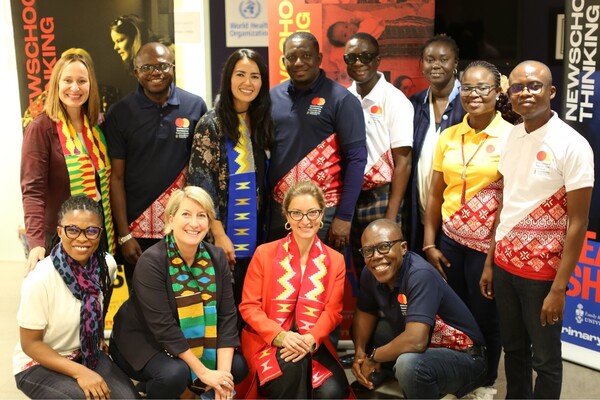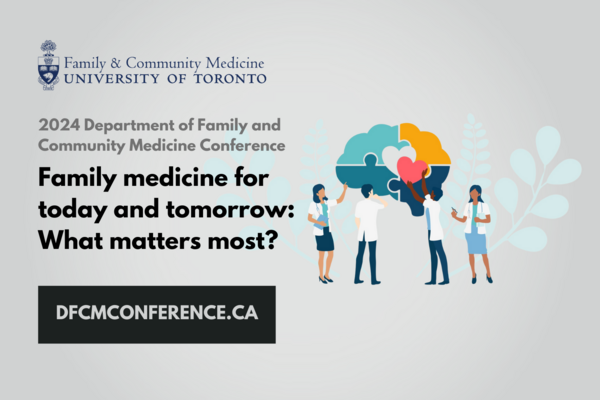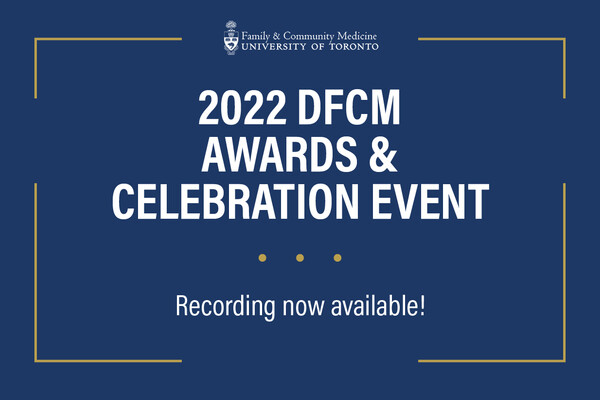New Podcast Teaches Lessons on the Value of Empathy
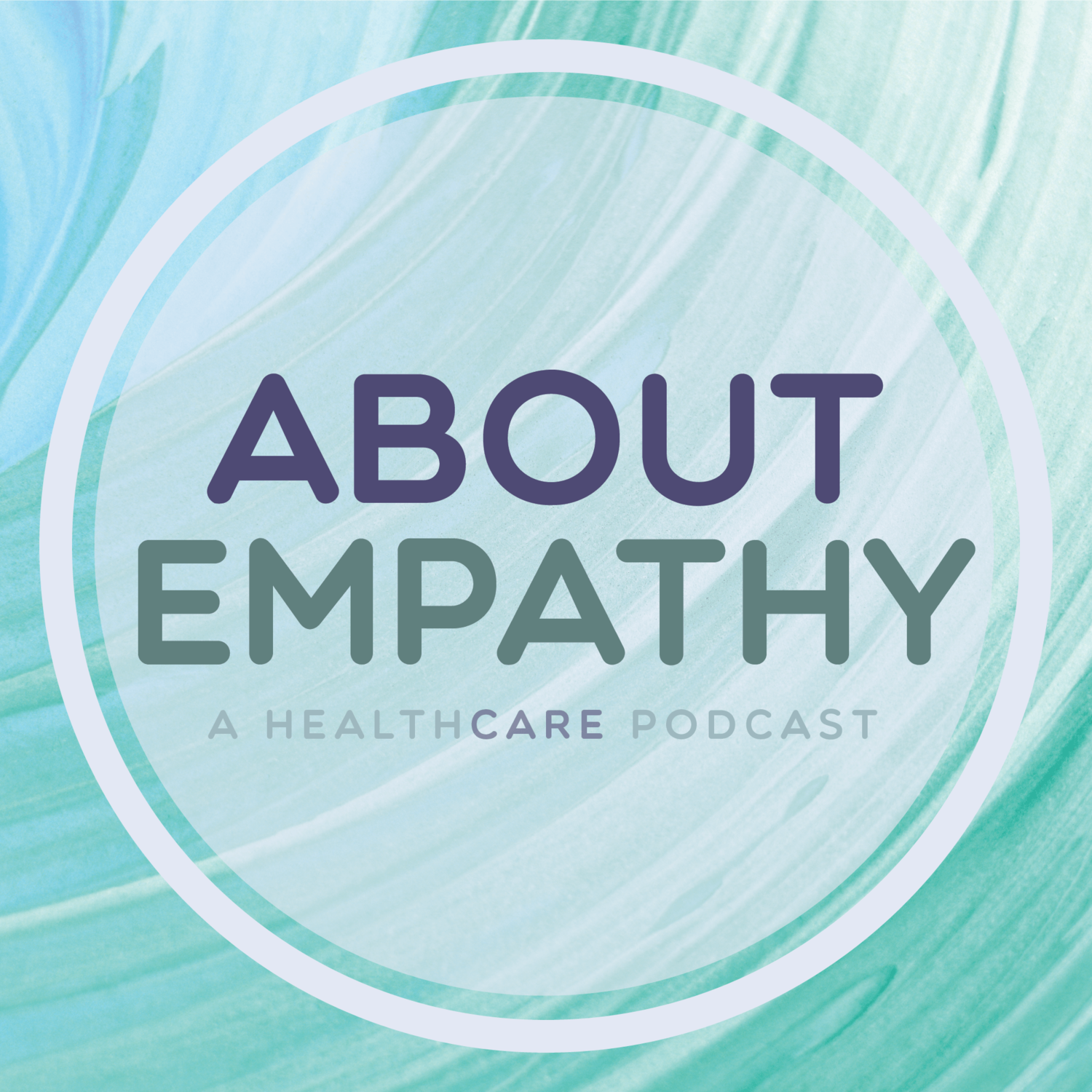
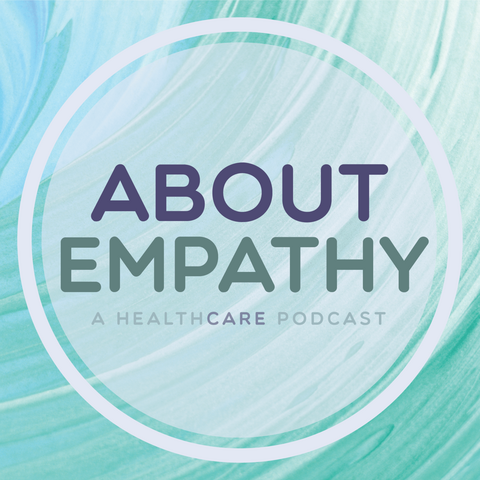
University of Toronto Department of Family and Community Medicine (DFCM) faculty members Dr. Giovanna Sirianni, Dr. Dori Seccareccia, and Dr. Irene Ying discuss the importance of practicing empathy in clinical encounters in their new podcast, About Empathy. Each episode of the podcast features a powerful story from a guest – either a patient, caregiver or healthcare provider– on their experiences with serious illness, followed by an engaging discussion and reflection on how we could support empathic interactions in the healthcare community.
Briefly describe the podcast and what it’s about.
Dr. Giovanna Sirianni (G): The podcast is called "About Empathy," and it's focused on patient, caregiver and healthcare providers' experiences with serious illness. The first half of the podcast is an interview with the guest where we take time to talk to them about their story. The second half of the podcast is a debrief between Dori, Irene, and myself, where we talk about what we learned or what we thought was interesting about that individual's story. The podcasts range anywhere from about 20 to 30 minutes in length.
Dr. Dori Seccareccia (D:) I really enjoy when we talk about our thoughts after the interview and try to connect it to a theme and pull out teaching points: we talk about what was memorable to us and what struck us in the interview.
G: There are eight episodes, and each episode has a different theme. One is on survivorship and hope, another on gratitude - so in the eight episode arc, you will notice that there are very distinct themes and topics that are covered.
Why did you start the podcast?
G: First off, we are colleagues, and we often talk about what podcasts we have been listening to. One day we were chatting and thought "Wouldn't it be interesting to have a podcast? What would that be like?" Would it be a palliative care podcast because that is the clinical work that we do? Would it be around teaching and education because that is also part of what we do?
It started there, and we started to explore the idea of how we could formalize it. Then we thought about the most interesting aspects of what we do. The stories of the patients and caregivers that we see are the most powerful and meaningful aspect of our work. So we thought it would be really interesting to have their stories drive the podcast.
And then we thought about focusing on learners as the intended audience and how the podcast could benefit them. It took awhile to develop - all of this was iterative.
Dr. Irene Ying (I): I love podcasts, and I started referring my residents or med students to certain podcasts that focus on medical teaching - so learning about blood transfusions or IV iron, and so on. Along that same line of thinking, I thought patients and caregivers can teach us so much better about their experiences than I ever could. So it made sense to do a podcast where you hear their stories, and I thought that the learners would get so much more from that rather than me just talking about situations I've been in with patients.
D: I think for us to try to speak to large numbers of learners often is not possible. With a podcast there’s a lot of people you have the opportunity to impact. None of us could give that many lectures to that many people to try and get across all the different things that we were able to touch upon in the eight episodes.
Are there any stories this season that stand out to you guys as particularly powerful?
I: I'm a little biased, because one of the patients is someone I've known for a few years who has navigated the challenges of the healthcare system with metastatic cancer really well. It always impresses me how much our patients have to deal with and how they're able to continually adapt, and how resilient they are. Dori has a patient with lymphoma who we interview, and I was very impressed with how she was able to describe how she didn't want to be treated as if she was a disease, she wanted to be treated as if she was a whole person. I thought she was able to put that very eloquently.
What are your goals for this podcast?
G: I think there are a few different goals. Because the intended audience is healthcare learners, part of the objective is to help providers recognize the importance of a patient's story. Sometimes, a clinical encounter can be very much focused on what is the presenting symptom, or what is the reason they are there today. We wanted to help expand thinking around the patient encounter to include a patient's story, to help foster compassion and empathy in those interactions. To me, that's a big part of it. I think that is the primary goal. There are other goals, including modelling the language, questions and strategies that can help foster compassion, empathy and dignity in a clinical encounter. I think that falls under the larger objective. We have been pleased that many faculty members have also been listening to the podcast and given us very positive feedback about how it has impacted them.
The About Empathy podcast can be streamed or downloaded from Apple Podcasts, GooglePlay, or their website. Follow their Twitter @AboutEmpathy for more updates and discussion.
Dr. Giovanna Sirianni is a family physician with a focused practice in palliative care at Sunnybrook Health Sciences Centre. She is also the Enhanced Skills Program Director and the Faculty Development Lead for the Division of Palliative Care at DFCM.
Dr. Dori Seccareccia is a family physician with 15 years of experience practicing and teaching palliative care. She has currently focused her practice on providing support and counselling in the patient and family area in the Odette Cancer Centre.
Dr. Irene Ying is a palliative care consultant at Sunnybrook Health Sciences Centre. She is also an Assistant Professor in the Division of Palliative Care at DFCM and a member of the Joint Centre for Bioethics at the University of Toronto.
News
